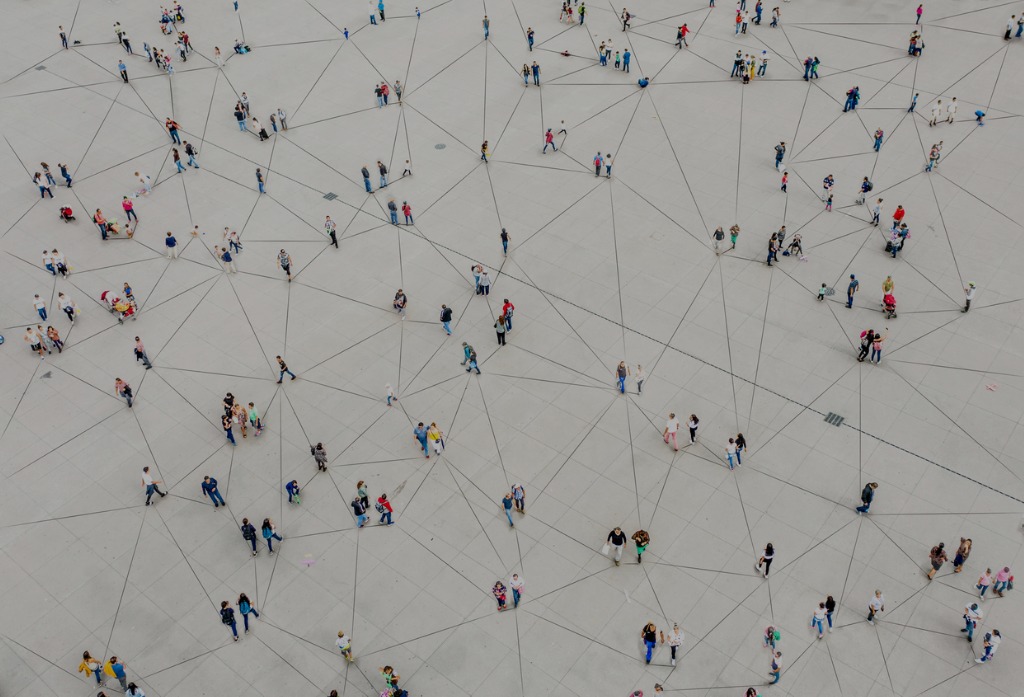When each of us steps forward to ask for what we need, we are building and strengthening vital connectivity, the laying of an “interstate highway” that provides the infrastructure for our future “traffic” of ideas, projects, and partnerships.
Corey Mohn, Executive Director
From an early age, my parents steeped me in the virtue of generosity. I was taught that being selfish was something to avoid at all costs. I vividly remember collecting baseball cards as a child—wanting to build the ultimate collection of all my favorite players; finding every card in a set that would make me a fortune someday. As good honest fun started turning into lust and greed, I would seek sometimes dubious trades with my younger brother who was also collecting. When my mother would catch wind of our pending transactions, she would intervene: “Don’t be selfish, Corey. Be a good brother.”
This was a quality life lesson—not to focus on your own greed and cheat others in the process. But, here’s the problem: if you only see being selfish as a character flaw, you will remain locked away from the incredible value selfish behavior gives access to. I can already feel you squirming in your seat. Let me explain.
I want you to consider what it means to “selfishly leverage.” The easiest context to apply this in is to think about partnerships. We often think of partnerships as collegial and collaborative. Isn’t being selfish the opposite of being a good partner? On the contrary!
If you want to maximize the value of your connections, you must have as many people in your network acting as selfishly as possible—opening up new communication channels, gathering existing data from those who have it in order to experiment in new ways, and serving your respective audience in the best ways possible—all in service of your personal and/or organization goals. By doing so, you are actually serving the future needs of others by building all-important connective tissue that binds your network together.
When students become self-advocates, they are able to transform the world in their own particular ways, based on their interests, passions, and purpose.
Corey Mohn, Executive Director
In our program, the Center for Advanced Professional Studies (CAPS) in the Kansas City area, we had students in our Foundations of Medicine course who wanted to increase the number and variety of professional experiences to which they were exposed. As self-advocates, they set off to connect with students in other CAPS Network programs offering medicine courses. The students were on a selfish mission to improve their experience.
They learned other programs had unique cultures and course structures, including a number of programs that had embedded learning experiences at local hospitals (something our program did not fully utilize). This knowledge led to enhancements to our curriculum and improvement of the student experience here in Kansas City. And now, when future students begin a similar search beyond their town or city, they can take advantage of the lessons learned in redesigning our structure.
Quite simply, when partners focus on extracting value from peers and other connections in service of their unique needs, they are building relationships and accessing the “living bridges” (like those found in nature) that unite us. Our connective tissue gets stronger the more we flex it, and the best way to do that is to chase after something we personally need.
Being Selfish is Learner-Centered
Learner-centered education teaches students the positive qualities of being selfish, often in the form of addressing the workforce gap around professional skills. These are more commonly referred to as “soft skills,” though I would argue there is nothing soft about them.
When a student sees and feels their ability to make a real impact on a particular project or issue, confidence soars. Initial confidence is the precursor to deeper and more permanent confidence levels, a phenomenon that breeds self-advocacy. When students become self-advocates, they are able to transform the world in their own particular ways, based on their interests, passions, and purpose.
Whereas the millennial generation often receives a poor grade from older generations for being overly self-centered, Generation Z, which accounts for nearly all students currently in K-12 schools, tend to use this view of self to advocate for causes beyond themselves.
Former CAPS Network student Jonah Stillman published a book titled Gen Z @ Work: How the Next Generation Is Transforming the Workplace to address misconceptions about his generation. He outlines seven key traits of Gen Z, one of which he defines as “Weconomists”:
From Uber to Airbnb, Gen Z has only known a world with a shared economy. Gen Z will push the workplace to break down internal and external silos to leverage the collective in new convenient and cost-effective ways. More than just as employees, Gen Z will leverage the power of “we” in their role as philanthropists. Gen Z will expect to partner with their employers to fix the wrongs they see in the world. Ninety-three percent of Gen Z says that a company’s impact on society affects their decision to work there.
Whether you are a young learner, an educator, a parent, or a community member, there is much to gain from being selfish and selfishly leveraging your connections. In the book Who You Know, Julia Freeland Fisher of the Christensen Institute argues that social networks are extremely important in the determination of a student’s future success. As she shares, “nothing—nothing—has more impact in the life of a child than positive relationships…Relationships, in other words, are at once buffers against risk and conduits to opportunity.”
When each of us steps forward to ask for what we need, we are building and strengthening vital connectivity, the laying of an “interstate highway” that provides the infrastructure for our future “traffic” of ideas, projects, and partnerships. When nodes of innovative thinking are connected, a new, transformative world emerges. We need to start by stiff-arming the Western cultural norm of picking ourselves up by our bootstraps and doing everything as a rugged individualist. When we channel our innovative spirits and ask for help from the community around us, amazing things happen.
But, only if we dare to be selfish.

